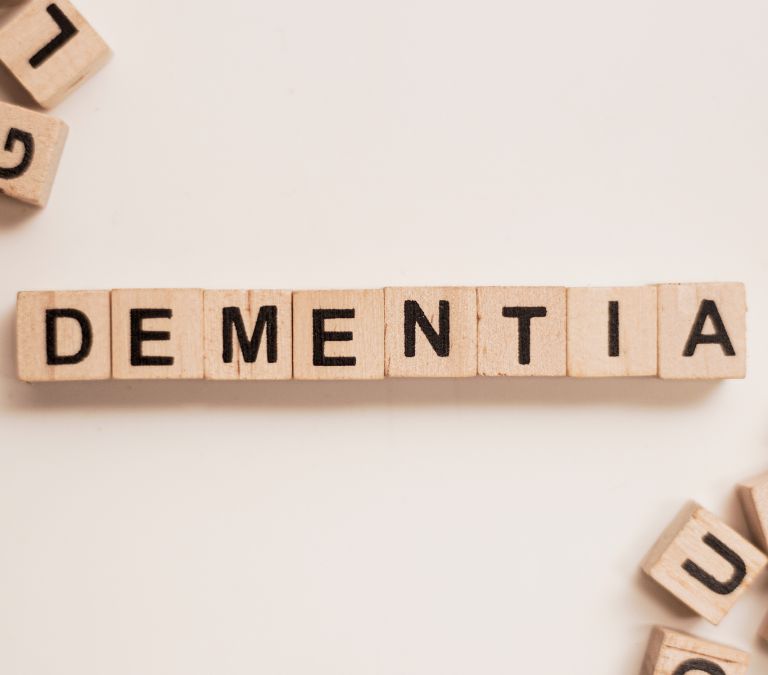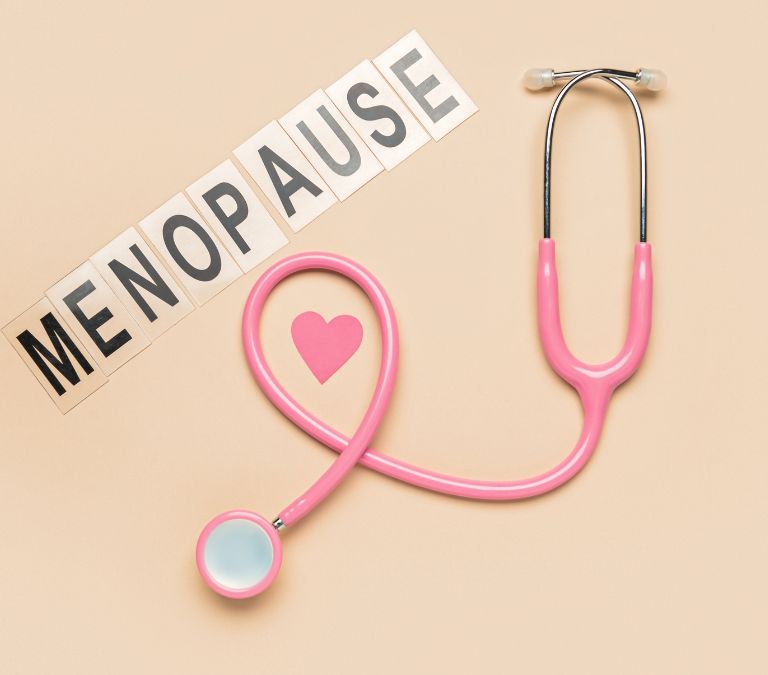Memory loss is the unusual forgetfulness of events for some time. Memory loss is often caused by brain injury, heavy consumption of alcohol or drugs, tiredness or the lack of sleep, illnesses, aging, or a significant transition in the body like menopause. You read that right – menopause.
Many of us know the symptoms of menopause: the painful hot flashes, the discomforting night sweats, and even the inability to enjoy sex! Menopause isn’t just the time of our lives when we no longer possess the ability to bear children; it is also the time we have to deal with symptoms associated with this compulsory phase.
While many changes happen during menopause, memory loss is often one we don’t hear of.
Have you recently found it difficult to remember where you left your AirPods? Or perhaps you recently just couldn’t remember where you left those letters? We’re in this together. Sometimes, memory loss can be normal. By normal, I refer to memory loss that occurs as a result of aging. While aging plays a key role in memory loss, studies have also shown that menopause also plays a crucial role.
Most women in their mid-ages experience memory loss at some time. In the United States, up to 50 percent of people over age 65 have experienced frequent cases of memory loss more than they did when younger. While most cases of memory loss have been attributed to aging, many cases today are signs of dementia. Dementia is the general name for memory loss. In this article, we’ll use dementia and memory loss interchangeably.
Understanding Dementia

Dementia is a descriptive term for problems affecting problems regarding the cognitive abilities of the brain. Dementia refers to abnormalities affecting thinking, memory, and social abilities to the point where it alters the pattern of your life in general.
With this, it is important to know that dementia doesn’t describe a particular disease; it generally discusses several problems under one umbrella. For example, when we hear of cardiovascular disease, we refer to diseases affecting the cardiovascular system. Cardiovascular diseases do not describe a particular disease; it describes several diseases affecting the cardiovascular system. In older adults, the most common form of dementia is Alzheimer’s disease.
What is Alzheimer’s disease (AD)?
Alzheimer’s disease, also known as senile dementia, is a disease that attacks and destroys the functionality of the brain, with more significant effects on memory. Alzheimer’s disease is the most common form of dementia in women. AD causes the brain to get smaller and, in turn, kills brain cells. People with AD will usually show early signs like forgetting a recent event.
Alzheimer’s disease is very popular among women living with dementia. AD accounts for more than 80 percent of dementia cases among women. What makes AD extra dangerous is its progressiveness over time. Women who show early forgetfulness may find it difficult to do basic tasks in the long run.
Alzheimer’s disease and menopause
The body is in a constant state of change. As you go through life, many changes happen in the body, which can change how certain parts of the body function. During puberty and adolescence, we get introduced to the concept of menstruation, and it causes us to adopt certain lifestyle changes for a very long time.
On getting to menopause, menstruation ceases, and hormonal fluctuations step in. Hormonal changes can cause long-term damage or changes to the metabolism of certain parts of the body. Now let’s go back to the brain.
The brain is a masterpiece of life functions. It controls everything about us, from the beating of the heart and the blinking of the eyes to the ability to make words and reason. As people age, chemical and physical changes negatively affect the brain. These chemical and physical changes could be so bad that it becomes difficult to remember basic things like where you left the sunscreen or why you can’t seem to recollect what went down last night in the bedroom.
Unlike mild cases of forgetfulness, AD patients can almost not remember those forgotten events or conversations anymore. Many menopausal women often show mild signs of AD. However, it is important to know that in most cases, Alzheimer’s disease in menopausal women is brain fog.
Brain Fog
Brain fog is different from Alzheimer’s disease in certain aspects. While Brain fog deals chiefly with memory loss, Alzheimer’s disease causes more than memory loss. However, it is important to know that brain fog is not a form of dementia.
Studies have shown that severe cognitive impairment does not always affect people suffering from brain fog. Unlike people who have ADD, brain fog doesn’t worsen over time. Research carried out on people suffering from brain fog revealed that people go on to live for many years, and their condition doesn’t get worse.
Also, brain fog patients could still remember events deemed to be forgotten. Brain fog patients could think effectively and remember these events in a quiet and serene environment. With these studies, one can conclude that the inability of brain fog patients to remember things could be a result of the inability to get rid of distractions clouding their thinking at a particular period.
While Alzheimer’s disease has no cure and worsens over time, brain fog can be managed effectively and treated. It is important to know that “brain fog” isn’t a medically recognized condition. The causes of brain fog range from a decline in hormones to lack of sleep, depression, stress, and vitamin B12 deficiency.
Memory Loss during Menopause: Alzheimer’s Disease (AD) or Brain Fog?

Problems of memory loss during menopause can be quite normal. At some time in our lives, we have forgotten certain occurrences. Even in your 20s, you may have forgotten the name of a friend or even your email password. As you go further in age, cases of memory loss become more frequent. With more menopausal women experiencing memory loss, people have wondered if it could be linked to dementia or brain fog. However, it is important to know that AD and brain fog have been found in menopausal women.
Alzheimer’s disease and brain fog can be influenced or triggered by fluctuating hormone levels during menopause. However, brain fog is more common, even more, common than you think. In a series of research conducted, it was observed that a vast majority of menopausal women experience negative mood frequently, sleep issues, and difficulties concentrating.
Women in the early stages of menopause (perimenopause) are the most affected because, at that point, hormone changes are more sudden and the body isn’t entirely used to it. For these women, brain fog is the most likely cause of memory loss. AD is more severe and often requires urgent medical attention. A common misconception, however, is that brain fog is an early sign of Alzheimer’s disease. This claim is false. Brain fog will not lead to AD even when left untreated.
In Massachusetts, many years ago, my mother was 62 and retired. That was the time of her life when all she wanted was to live in the countryside and raise chickens. To her, life was going pretty great. At that time, I was 23 and already a senior in college. By senior, I mean thinking about how to pay back college debts and get a job immediately after graduation. As Christmas drew nearer, I reminded my mom that I would fly from Minnesota to spend the holidays with her.
On the 21st of December that year, I packed my luggage, folded my sheets, and took an Uber to the airport. In about 3 hours, I got to the airport and phoned my mom.
“Hey, mom, I just landed. Are you at the airport yet?” I asked
“What airport? You didn’t tell me you were coming home,” she replied, yelling
“I did, mom, I did. We spoke on the phone last night, and I made it very clear I was coming to spend Christmas with you.”
“What are you saying, Jasmine? I can’t remember us having any conversation about you coming. I was at home all day yesterday, and my phone didn’t ring once.” My mom replied
Without prolonging the call, I knew something was wrong and immediately hung up. What a way to celebrate Christmas.
After sitting for about 10 minutes doing nothing, I dragged my bag outside the airport, and my phone rang again, and it was my mom; this time, with a calm tone.
“Hey Jaz, I think I remember now. We spoke last night, and I agreed to come to pick you up at the airport. I’m on my way. I’m sorry. Please stay where you are.”
“What do you mean you remember now? How could you forget something so important? I’ve been telling you about my plans to come to visit you for the holidays. We spoke for about an hour last night; how could you forget?”
“I haven’t been feeling quite well lately, Jaz. I’ve forgotten things recently. Can we please not talk about this on the phone? My mom responded.
“Sure. Sure, mom,” I replied.
That year, my siblings and I spent Christmas convincing my mom to visit the clinic. After much persuasion and several fake threats that she would run mad, my mom resorted to getting solutions in the clinic – the only place medical problems are addressed.
On diagnosis, doctors discovered that my mom had a healthy brain, not brain fog or dementia. According to the doctor, my mom’s brain was only aging like the rest of her body.
Seeing a family member get old could be difficult to cope with. I struggled with the fact that my mom wasn’t the way she was when I was 12, but I felt relief seeing her go through many years.
Sometimes, it is difficult to differentiate between memory loss caused by menopause, memory loss caused by illnesses, and memory loss caused by aging. In a nutshell, menopausal women are vulnerable to all three causes of memory loss. When problems like memory loss occur in menopausal women, it is most often assumed to be caused by menopause or illnesses. However, it is important to know that aging is a major cause of memory loss, even during menopause.
Difference between AD and Brain Fog
- Brain fog often gets better with time, while AD gets worse.
- Unlike brain fog, memory loss caused by AD could be permanent.
- Alzheimer’s disease (AD) causes severe neurological, psychiatric, and cognitive impairment. In other words, AD doesn’t just affect memory; it changes your ability to reason, think, and function in your usual daily activities.
- Alzheimer’s diseases are not cured. Brain fog, however, is 100 percent curable.
What happens to women’s brains during perimenopause, menopause, and postmenopause?
During menopause, your body’s estrogen level decreases. The reduction in estrogen content of the body is the cause of almost every symptom experienced during menopause. This decline reduces the amount of estrogen involved in the brain’s activities.
When the amount of estrogen going to the brain reduces, its role in regulating various chemicals in the nervous system becomes reduced or, in severe cases, non-existent. As there isn’t enough estrogen going to the brain, frequent faults may become evident. Usually, these faults come from memory loss/Alzheimer’s disease.
In a research published by Harvard college in 2021, findings showed that the form of estrogen working in the brain is estradiol. Their research showed that estradiol affects general memory function. When you get to menopause and sex hormones begin to decline, menopause takes center stage as the main influencer of memory loss, not aging. It is the reason more women experience memory loss than. The ratio of women experiencing memory loss to that of men is 2:1.
In the United States, women are the most affected with problems regarding memory loss. While aging could cause cognitive impairment, menopause still takes an important position as a causative agent. Almost all cases of memory loss in men can be attributed to aging. In women, however, memory loss is equally caused by aging and menopause. Seeing that menopause starts in the early mid-ages, many women today are more vulnerable to problems regarding memory loss as early as 50.
How do I get rid of perimenopause brain fog?
Women in perimenopause often experience spikes in menopausal symptoms than women in Postmenopause. The moment periods become irregular; menopause symptoms are bound to appear. These symptoms may continue for a long time. However, they gradually die down as you go further into full transition.
One can manage brain fog caused by menopause effectively. Many menopausal women with brain fog have seen this problem disappear without treatments. However, this is not always the case. Just like other symptoms of menopause, brain fog could be severe in some women and mild in others.
Severe brain fog could be dangerous for menopausal women still trying to get rid of other menopausal symptoms. These women may forget when to take their medications, how to maintain good personal hygiene, and do other important things during menopause.
As stated earlier, brain fog is not as dangerous as AD. In cases of forgetfulness become regular and severe; it may just be dementia. It is important to visit a doctor to get a top-notch diagnosis of the exact problem.
If the doctor confirms the cause of memory loss to be menopause and not dementia, hormone therapy is recommended.
Menopausal Hormone Therapy for Brain Fog
Menopausal hormone therapy (shortened as hormone therapy) is a treatment given to women in menopause to help them with menopause symptoms. The mechanism of hormone therapy is simple; deficient or scarce hormones are taken into the body to help create a balance.
Recall that many symptoms, including brain fog experienced during menopause, are caused by fluctuations in hormonal levels. Menopausal hormone therapy has recorded significant successes in relieving most symptoms during menopause. However, how much success has been recorded in the effects of hormone therapy on brain fog?
Detailed and comprehensive research on the effectiveness of hormone therapy on brain fog has been very limited. From research conducted, however, few successes have been observed. One factor that greatly affects the effectiveness of hormone therapy on brain fog is timing. Studies have shown that menopausal women who start hormone therapy as early as five years before menopause may significantly affect general memory function and cognitive activities.
Hormone therapy can help with short-term solutions to memory loss. When taken in small doses, hormone therapy can reduce forgetfulness and cause a slight change in cognitive function. Hormone therapy will not eradicate brain fog during menopause.
Hormone therapy for memory problems during menopause is taken for short-term effects only. Taking for long periods or in large doses could increase your vulnerability to more severe health issues. For many years, hormone therapy has helped many women deal with menopausal problems.
Hormone therapy is regarded as the best and most effective treatment for menopausal symptoms. While this is true, it is important to know that hormone therapy has a risk that could be severe in some women.
Studies have shown that long-term use of hormone therapy could cause dementia, a severe form of cognitive impairment. Other than dementia, long-term use of hormone therapy has been linked to a cause of severe diseases like breast cancer, cardiovascular diseases, loss of muscle strength, and type2 diabetes.
For this reason, you must have a comprehensive conversation with your doctor before embarking on hormone therapy for your menopausal problems. For some women, hormone therapy is very successful. For some other women, it isn’t.
Since brain fog is a symptom of menopause, there is a high possibility that it will go away after some time. Menopausal women with brain fog have reported improvements as they go further into menopause. If memory loss continues for long periods, it might be something else and, as such, should be handled by a doctor.
Living with Brain Fog during Menopause
Management options for brain fog during menopause are similar to other symptoms. Exercises, lifestyle, and diet are the most effective management options for menopause.
Hydration
Three-quarters of the brain consists of water. Studies have shown that dehydration could worsen cases of memory loss in menopausal women. Water is very important for life. With large parts of the brain made of water, little cases of dehydration can lead to disrupting cognitive functions, especially in cases of brain fog.
For this reason, all menopausal women are advised to make conscious efforts to drink more water. It is advised that you take at least 8 glasses of water daily. If you find it difficult to drink more water, maybe because it has no taste, you can try flavoring your water with fruits and mint to add a sweetened taste or, better still, make it more refreshing.
Regular Exercises and Physical Activities

Exercises are used by many menopausal women today to help them combat menopausal symptoms. Exercises have been proven as an excellent mechanism for managing most symptoms associated with menopause. In many cases, menopausal women with brain fog only find it difficult to concentrate in the presence of distractions.
When in a peaceful environment, these women can easily remember events assumed to be forgotten. Different women react differently to menopause, which explains why different cases of brain fog during menopause vary. Regardless of how severe brain fog could be, exercises have proven to help.
Studies have shown that one week’s engagement in light or moderate-intensity workouts may improve general thinking and cognitive impairment. While exercise has helped menopausal women sleep better and feel stronger, it has also helped people concentrate better with facilitated thinking.
Some common physical activities that can help you manage memory loss effectively include:
Aerobic Exercises
Aerobic exercises are cardio exercises that cover all elements of fitness. During aerobic exercises, you breathe at a faster rate, and you get exhausted at the end of every round. Some aerobic exercises include brisk walking, jogging, running, swimming, and cycling.
Aerobic exercises help with general health, and they are also important exercises proven to boost mood and make us feel better, according to research by PubMed. Memory loss during menopause can be frustrating. Your situation might worsen when you get moody and sedentary from setbacks like memory loss.
Yoga
Earlier in this article, we stated that most menopausal women who often forget events and conversations remember these forgotten occurrences in a peaceful environment. Sometimes, all we need is meditation and deep thoughts.
Yoga is an excellent way to meditate and relax. Today, more people are going for yoga over other exercise options. Memory loss is sometimes caused by stress and overthinking. It is also sometimes associated with depression, anxiety, panic attacks, and moodiness.
You can adopt yoga to help with these problems. Since yoga deals with meditations, menopausal women experiencing memory loss could find yoga very satisfying in helping them stay calm and positive and get that much-needed sleep.
Dancing
Like it or not, dancing is an exercise. Not only does it help the body stay moving, but it also brightens the mood. In today’s society, dancing is seen as a way happiness is portrayed.
Prevention of Brain Fog during Menopause
Just like not all menopausal women experience osteoporosis, not all menopausal women experience brain fog. For menopausal women without brain fog, preventive measures are available and have been proven to be very effective in kicking out brain fog and other problems related to cognitive abilities during menopause.
Preventive options for brain fog comprise lifestyle changes, diet options, intentional cognitive activity, social contact, medications, and hormone therapy.
Lifestyle Changes & Physical Activities for Brain Fog during Menopause
Lifestyle changes are modifications and changes in behavior and lifestyle patterns to effectively adapt or manage a problem. Lifestyle options like exercise and adequate sleep have been proven beneficial to the brain.
How do I get rid of postmenopausal brain fog?
Brain fog can be managed effectively and even cured. However, brain fog caused by menopause is often slightly more complicated. Since it is caused by menopause, treatments and lifestyle options should not aggravate menopausal symptoms. The best
7 Foods That Improve Memory Loss during Menopause

Menopause and memory Los are two delicate conditions that often require intensive care. While hormone therapy hasn’t been very effective in delivering long-term solutions, doctors sometimes resort to diet options to obtain nutrition variables to improve and maintain brain health. While several foods have been proven to be carriers of these essential nutrients, I have gathered the most effective and scientifically proven 7.
Leafy Greens
Veggies should be your second favorite food after every other food. Yes, you can run from them but never hide from them. Funny how veggies always find a way to the top of every list on most healthy meals.
Vegetables are packed with numerous nutrients and antioxidants. Research has suggested that menopausal women who add more least greens to their diet are more likely to recover faster or show improvements in memory loss. Some common leafy greens include spinach, kale, broccoli, and collards. With a high vitamin K and beta carotene content, greens may help improve memory loss during menopause.
Fish
Fish have a high content of omega-3 fatty acids. Not only is Omega-3 fatty acid linked to the improvement of cognitive functions, but it is also suggested to help develop nerve cells. As an added advantage, Omega-3 fatty acids may help reduce your risk of developing severe brain conditions like Alzheimer’s. Sardines, salmon, mackerel, and trout are the best examples of fish to use for memory during menopause.
Berries
Studies have shown that berries can improve memory and prevent loss caused by age and menopause. From research on the effects of berries on memory loss, the high content of antioxidants in berries and cherries could protect the brain from free radicals capable of destroying the brain’s cognitive function. Also, it has been observed that berries alter the mechanism of communication between neurons of the brain. By altering the communication mechanism, problems like inflammation and death of brain cells are prevented.
Avocados
The working memory of menopausal women with brain fog has been improved by consuming one avocado daily. With significant content of anti-inflammatory phytonutrients, avocados have been linked relatedly to improved cognitive function and brain functionality.
Studies have shown that unlike the improved cognitive function experienced by frequent consumers of avocado, menopausal women with memory loss who didn’t take avocado at all didn’t show any signs of improvement in their cognitive function.
Whole Grains
From studies conducted recently, people who are more grains recorded less inflammation in the brain. In this research, the effectiveness of combining barley and brown rice was overwhelming. Since realizing this, I have included more grains in my diet, which I wasn’t used to. Some examples of whole grains include oatmeal, barley, millet, buckwheat, and brown rice.
Eggs
After establishing itself as one of America’s most enjoyed breakfasts, eggs have proven to be more than that. Eggs are very nutritious, and it is not surprising to see them on the list of foods helping the brain stay healthy. From several studies conducted through the years, it has been observed that eggs could have qualities capable of improving cognitive function.
These qualities are seen in experiencing memory loss. By including eggs in the diet, improvements were observed. While the effects of eggs on menopausal memory loss haven’t been extensively proven, we cannot completely rule out the effects it has on general brain health.
Sweet Potato
Sweet potatoes contain large amounts of iron and copper, two minerals known to positively affect brain activity. Experts have suggested eating sweet potatoes with the skin and a little salt to improve memory. Other minerals like potassium, vitamin B6 and C, and manganese are found in sweet potatoes and are also believed to assist in developing healthy and normal brain functions.
Conclusion
Menopause can be very difficult. With the decline in hormonal levels now linked to even more problems, the average menopausal woman is more vulnerable to various complications that could be very severe in some women. While menopause may feel scary, accepting it as a compulsory phase of life could help you go through a smooth transition.
Menopause signifies aging, and to me, aging is a blessing. When the symptoms of menopause come knocking, you shouldn’t know bow to it. Instead, you should find ways to overcome it. During menopause, it is important to keep your doctor closer than before because I’m most cases, all your need is a doctor’s advice.







